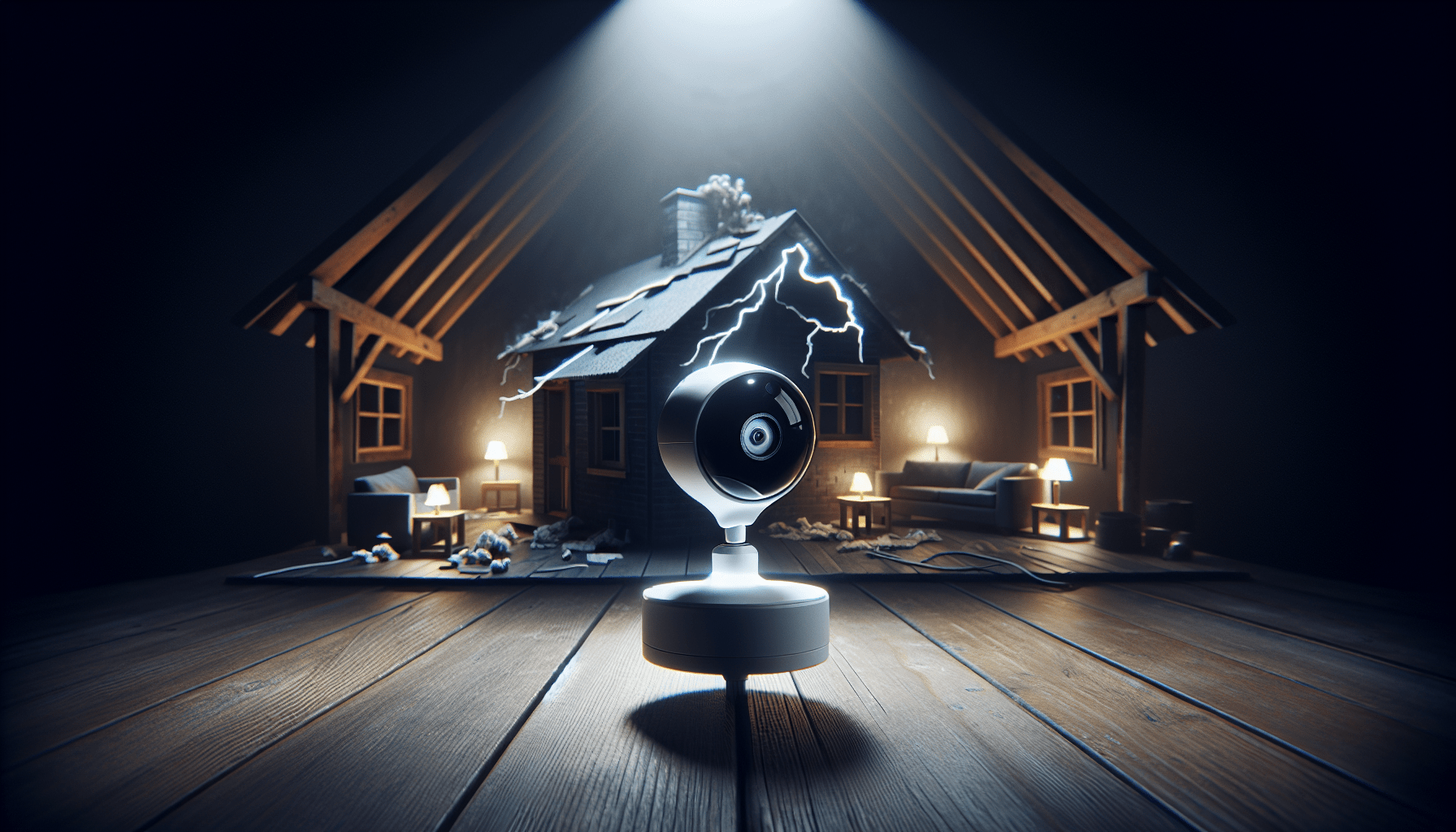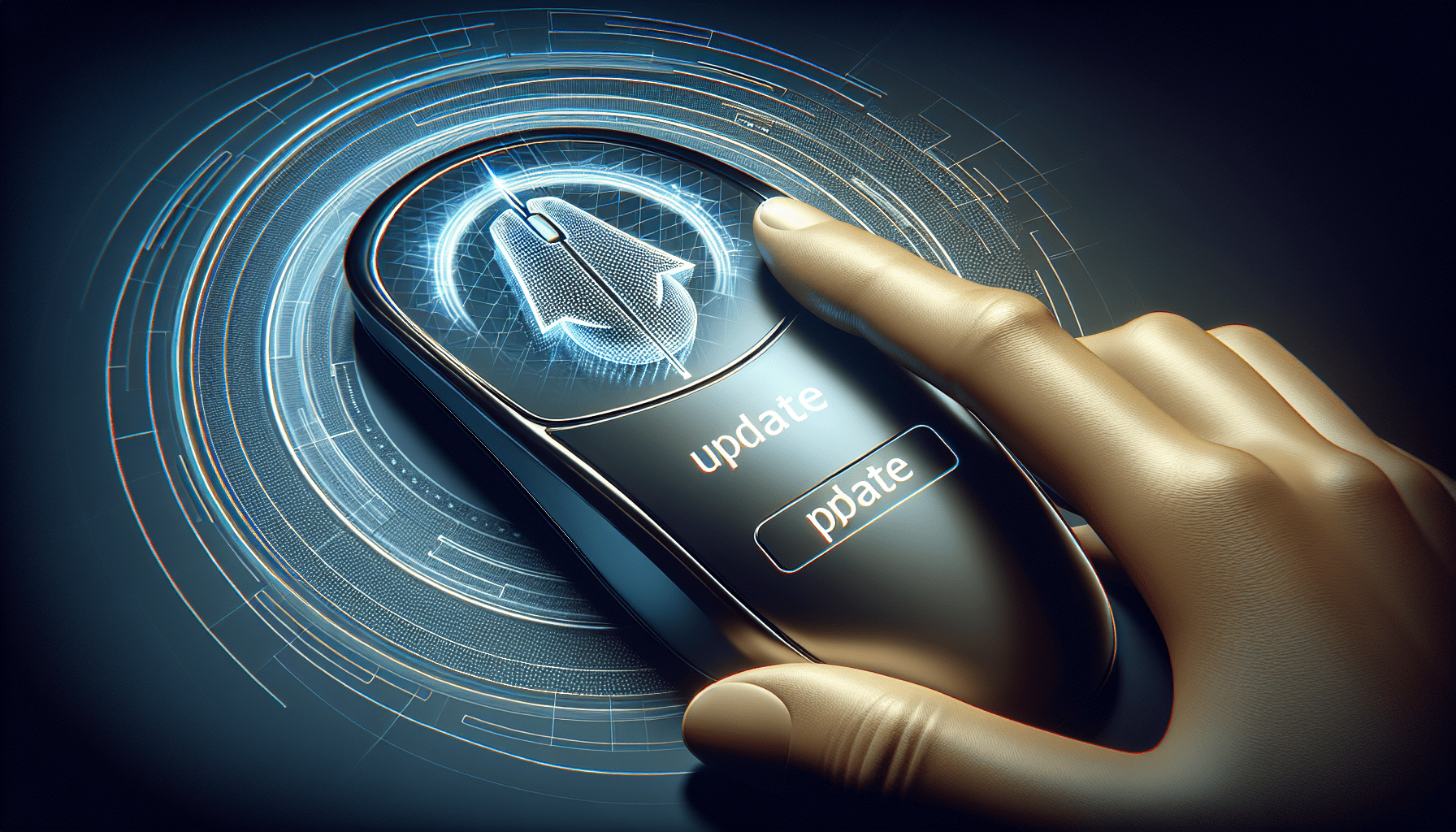Imagine this scenario: you’re peacefully sleeping in your cozy bed when suddenly, the lights go out. A power outage. Panic sets in. But amidst your initial worries, you start to wonder – what happens to your smart home security system during situations like these? Will it still be able to keep you and your loved ones safe? In this article, we will explore the fascinating world of smart home security systems and unravel the mysteries of their performance during power outages. So, grab a cup of coffee, sit back, and let’s unravel the truth together.
Loss of Power to Smart Home Security System
1.1 Power Source for Smart Home Security System
When a power outage occurs, the first concern for any homeowner with a smart home security system is the loss of power to the system. Smart home security systems typically rely on electricity to function, so when the power goes out, it poses a potential risk to the security and functionality of the system. Without a reliable power source, the system may become temporarily or completely non-operational, leaving your home vulnerable to intruders.
1.2 Impact on Security Cameras
One of the primary components of a smart home security system is the security cameras. These cameras play a crucial role in keeping your home safe and monitoring any suspicious activities. However, when the power goes out, the cameras lose their power supply and cease to function. This means that during a power outage, your security cameras will not be able to record any footage or provide you with real-time monitoring. It’s essential to consider this impact on the security cameras when evaluating the effectiveness of your smart home security system.
1.3 Effect on Door and Window Sensors
Another vital element of a smart home security system is the door and window sensors. These sensors are responsible for detecting any unauthorized entry into your home and triggering an alert. However, without power, these sensors will not be able to communicate with the central control panel of your system. This means that during a power outage, the door and window sensors may be rendered useless, leaving your home unprotected. It’s crucial to consider the effect of power loss on these sensors and explore backup power options to maintain the security of your home.
Backup Power Options
2.1 Uninterruptible Power Supply (UPS)
To mitigate the impact of a power outage on your smart home security system, you can consider investing in an uninterruptible power supply (UPS). A UPS acts as a backup power source, providing temporary power to your security system when the main power grid fails. It ensures that your system remains operational during a power outage, allowing your security cameras, door and window sensors, and other components to function as intended. A UPS typically uses a rechargeable battery to store electricity and automatically switches to battery power when the main power supply is interrupted.
2.2 Battery Backup
Another backup power option for your smart home security system is a battery backup. This involves connecting your system to a rechargeable battery that can provide power when the electricity goes out. The battery backup solution is especially useful for short-term power outages, as it allows your security system to continue functioning until the power is restored. Battery backups are generally more affordable than UPS systems and are relatively easy to install. However, it’s essential to ensure that the battery backup has enough capacity to support your specific security system’s power requirements.
2.3 Solar Power
For those looking for a more sustainable and long-term backup power solution for their smart home security systems, solar power can be a viable option. By installing solar panels on your property, you can generate electricity and store it in batteries for use during a power outage. Solar power not only provides a backup power source but also reduces your reliance on the main power grid and helps you save on energy costs. However, the integration of solar power into your smart home security system requires careful planning and professional installation to ensure optimal functionality and compatibility.
Response from Monitoring Service
3.1 Communication with Monitoring Station
When a power outage occurs, your smart home security system may become disconnected from its monitoring station. The loss of power means that your system can no longer communicate with the monitoring station, preventing them from receiving real-time updates on your home’s security status. This disconnection can affect the effectiveness of your security system, as timely communication with the monitoring station is essential for prompt response to any security breaches or emergencies. It’s crucial to understand how your monitoring service copes with power outages and whether alternative communication methods are in place to maintain the connection.
3.2 Importance of Cellular Backup
To ensure uninterrupted communication between your smart home security system and the monitoring station during a power outage, cellular backup becomes crucial. Cellular backup relies on cellular networks instead of the traditional landline or internet connection, allowing your security system to maintain communication even when the power goes out. By having a cellular backup feature in your system, you can rest assured that your security provider will continue to receive alerts and updates, enabling them to take appropriate action. Make sure to inquire with your monitoring service if they offer cellular backup as part of their service package.
3.3 Temporary Suspension of Monitoring
In some cases, a power outage can result in the temporary suspension of monitoring services for your smart home security system. This suspension occurs when the monitoring station is unable to receive signals from your system due to the loss of power. As a result, during a power outage, your security system may not be actively monitored by professionals, reducing the level of protection for your home. It’s important to discuss this possibility with your monitoring service and inquire about any temporary suspension protocols they have in place. Understanding these protocols can help you make informed decisions and take additional security measures during power outages.
Smart Home Automation Features
4.1 Loss of Remote Access and Control
One of the significant advantages of a smart home security system is the ability to remotely access and control various features of your home. However, during a power outage, this capability may be compromised. Without power, your system’s central control panel may lose connectivity, preventing you from remotely accessing or controlling your security system and other connected devices. This loss of remote access can feel frustrating, especially if you rely on the convenience and flexibility of controlling your home’s security from anywhere. It’s essential to be aware of this limitation and have alternative means of accessing and controlling your security system during power outages.
4.2 Impact on Home Automation Activities
Along with the loss of remote access and control, a power outage also affects other automated features of your smart home security system. Automated routines such as lighting schedules, temperature adjustments, and even routine security checks may be disrupted without a reliable power source. This can impact your daily routine and the overall convenience and efficiency of your smart home automation. To minimize the disruption during power outages, consider backup power options specifically designed for home automation systems, such as UPS or battery backups, to ensure the continuity of these automated activities.
4.3 Impact on Advanced Features
Many smart home security systems offer advanced features that rely on a continuous power supply to function optimally. These features can include facial recognition, motion tracking, voice commands, and integration with other smart devices. However, during a power outage, these advanced features may be temporarily disabled or significantly hindered, limiting their effectiveness. It’s important to understand the impact of power loss on these advanced features, especially if they are central to your security system’s capabilities. Exploring backup power options that can support these advanced features can help ensure their uninterrupted functionality during power outages.
Recovery After Power Outage
5.1 System Initialization
Once the power is restored after an outage, your smart home security system may require initialization to resume normal operation. This initialization process involves the system syncing with its components, checking for any errors or disruptions caused by the power outage, and reestablishing connectivity with the monitoring station, if applicable. This initialization ensures that your security system is ready to protect your home as intended once the power is back on.
5.2 Reprogramming and Resetting
In some cases, a power outage may cause the settings and configurations of your smart home security system to be lost. This means that you may need to reprogram and reset certain aspects of your system, such as alarm settings, access codes, or user permissions. It’s important to have a backup of your system’s settings and configurations to make this reprogramming process more streamlined and efficient. Additionally, regularly backing up your system’s settings can help minimize the impact of a power outage on your security system in the future.
5.3 Checking for Damage and Malfunction
After a power outage, it’s crucial to thoroughly check your smart home security system for any signs of damage or malfunction. Power surges or fluctuations during outages can potentially cause damage to electronic components, resulting in compromised functionality. Inspect your security cameras, door and window sensors, control panel, and any other connected devices for any visible damage or signs of malfunction. If you notice any issues, it’s advisable to contact your security system provider or a professional technician to assess and resolve the problem.
In conclusion, a power outage can have significant implications for your smart home security system. It can result in the loss of power to the system, impact the functionality of security cameras and door/window sensors, disrupt communication with the monitoring station, affect remote access and control, and potentially damage advanced features. However, by exploring backup power options, understanding the response from monitoring services, and being prepared for system recovery after a power outage, you can minimize the impact and maintain the security of your smart home.






